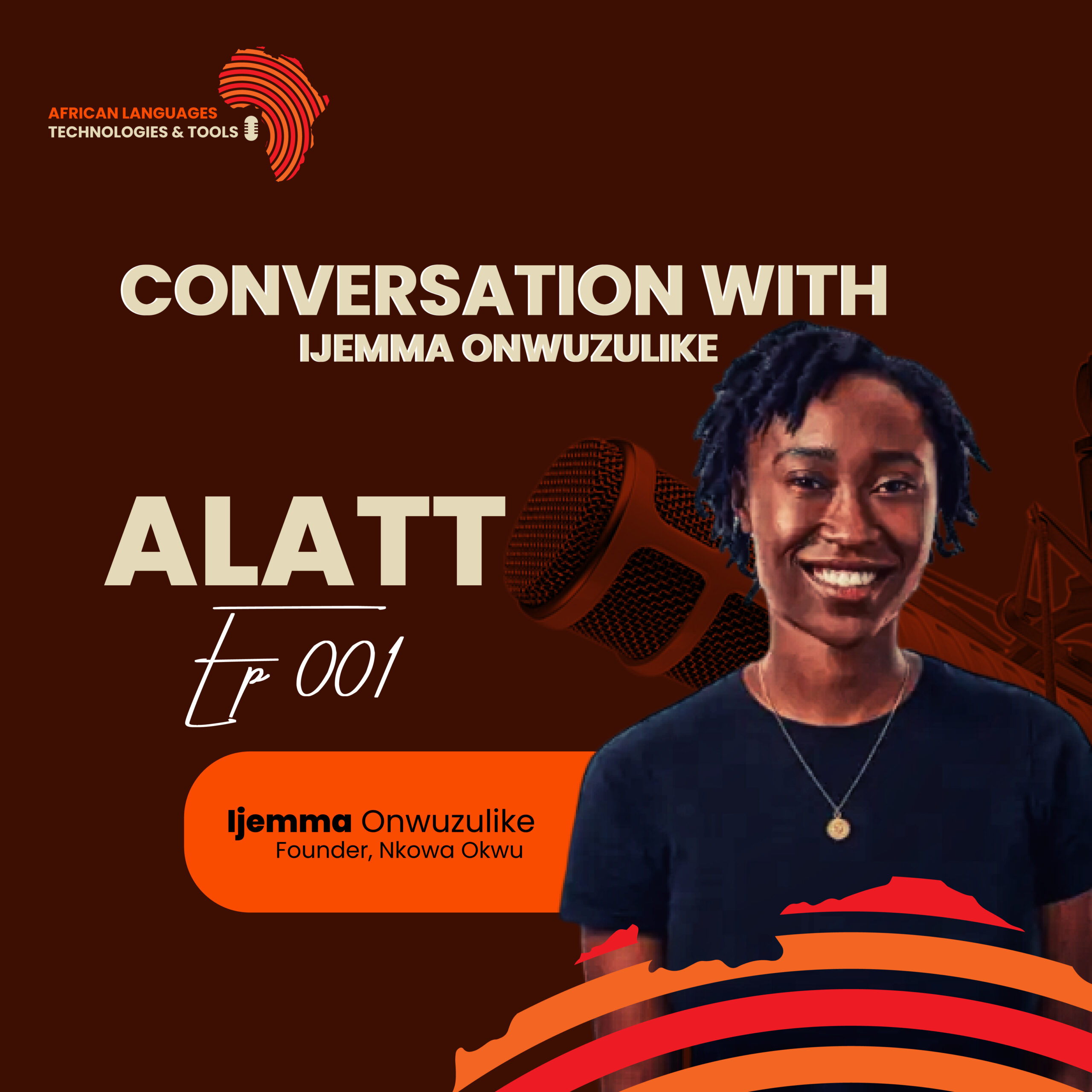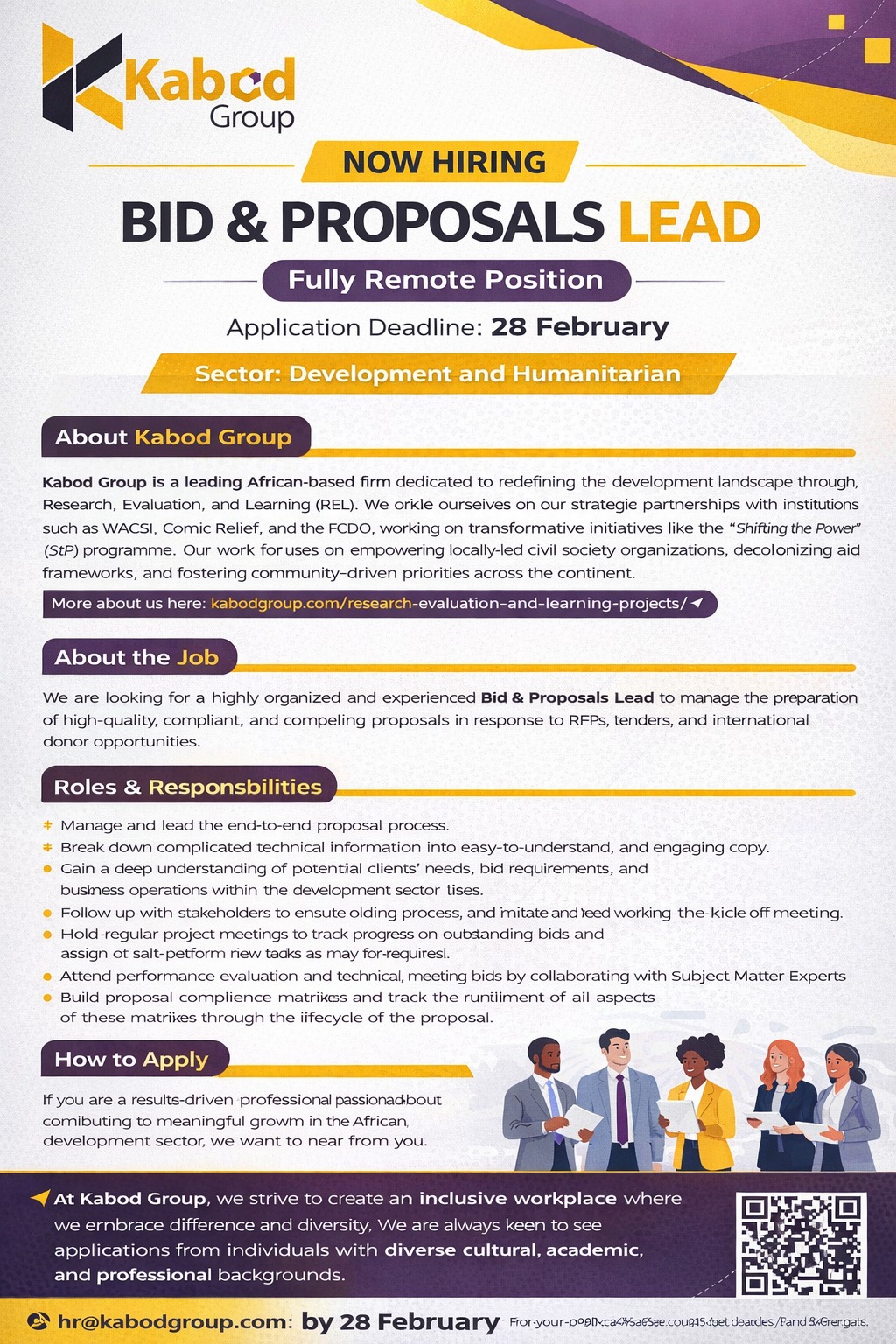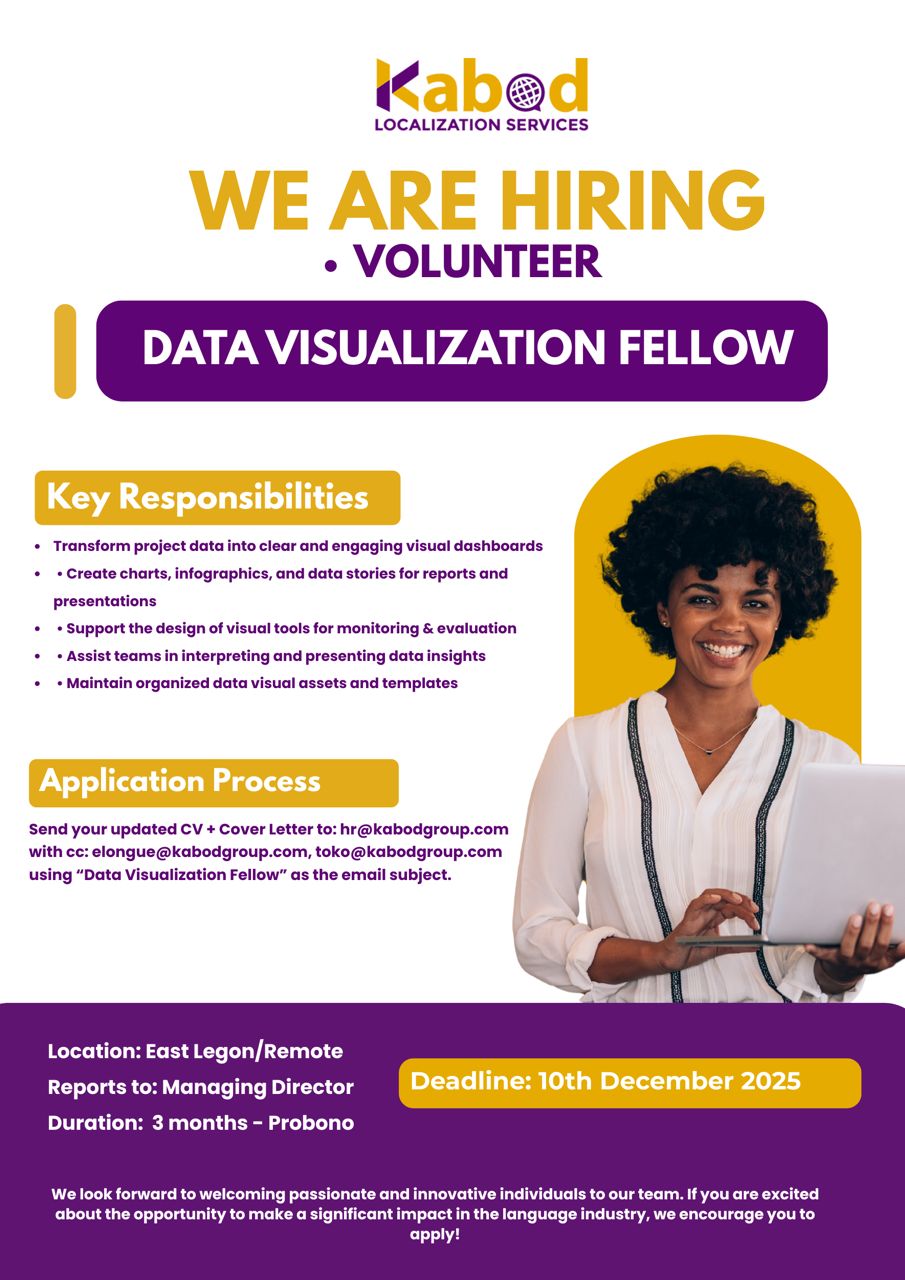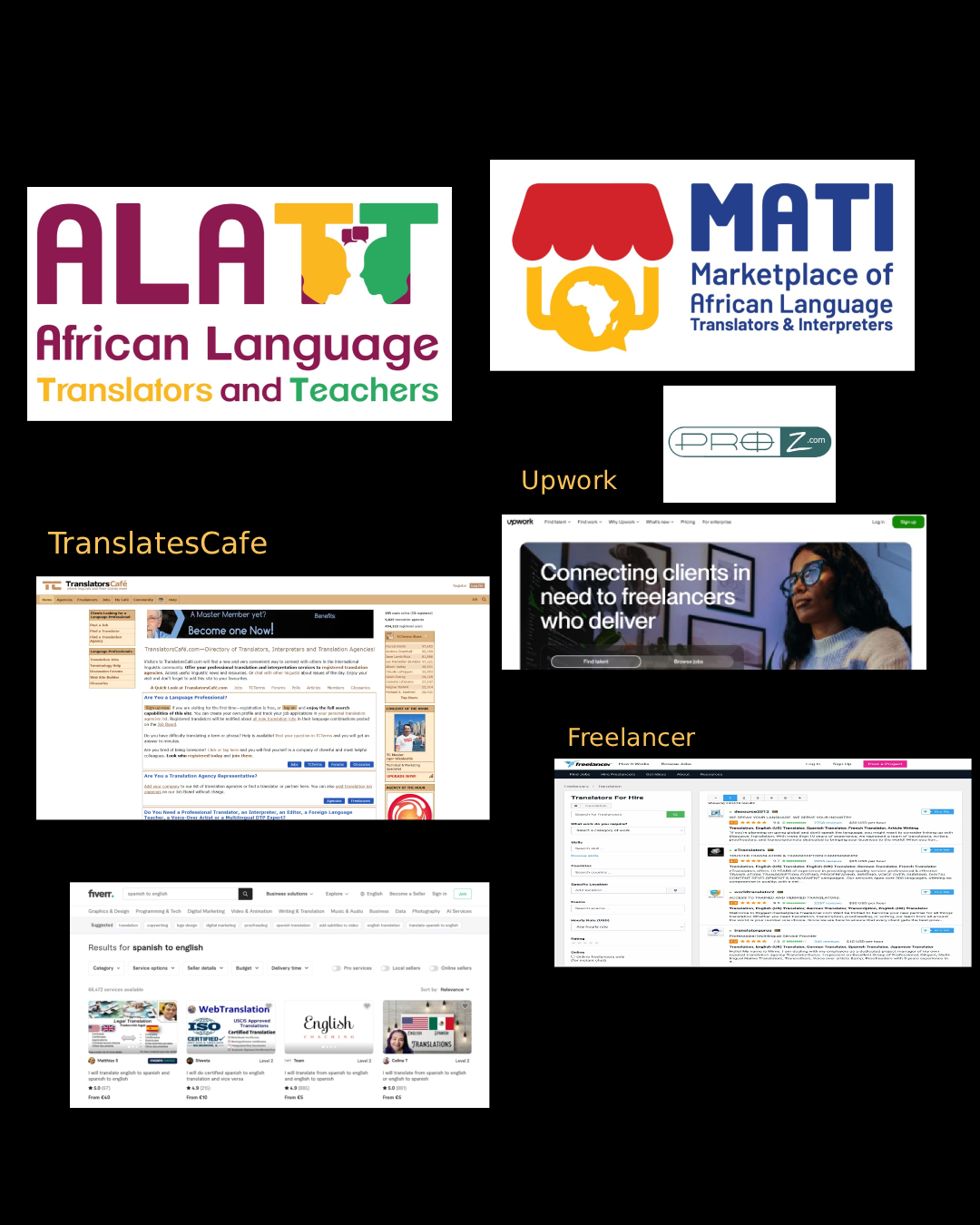Kabod is a language service provider that specialises in providing quality language services in African languages as well as other Western languages. Our primary goal is to elevate African culture through our languages.
Miss Ijemma Nkowa Okwu is a software engineer, founder, and CEO of NKOWA OKWU an Igbo language learning platform.
Kabod: Can you tell us more about the idea behind “Nkowa Okwu”? How did you come up with this project of creating a language dictionary and application?
I grew up in California, and my parents were immigrants from Nigeria, and since they wanted me and my older sisters to assimilate into American culture,they didn’t teach us the Igbo language. At the time, as a kid, I didn’t think much of it and just wanted to be like every other kid.
So I grew up not speaking the language. And I went to college to study computer science, Japanese language, and literature. And that’s where I learned about how not as difficult as it shouldn’t be to learn Japanese, which is very, very different from English. And then, after studying Japanese in college and with my computer science degree, I was thinking, How could I make something that makes it easier to learn a language now that I have gone through this experience of learning another language?
I had the chance and the time to sit down and study the Igbo language thanks to the COVID-19. However, I discovered that the learning resources that were already available were of poor quality. So I made the decision to attempt to create an API, or application programming interface. In essence, it is a piece of software that makes it simple for you to receive any requested data. In order to enable people to request Igbo words and then receive the word data back, I created a dictionary API. And then that started back in 2020.
And then we built “Nkowa Okwu” about eight months later, which turned into the organisation that we have today. “Nkowa Okwu” is an application built on top of the Igbo API, which just makes it super easy for anyone who knows how to use a phone or laptop to search for words, or Igbo words with Igbo search terms or English search terms. And then now we’ve blossomed into doing a lot of different types of projects. But it was all centred on and focused around the Igbo language.
Kabod: How has been the reception from linguists, the African diaspora, and the Nigerian diaspora? How are people responding to the app?
It’s gradually being used more and more. There are many linguists who believe in and support our work, which also contributes to their own research. Even though Igbo is classified as an “endangered language” with only a couple thousand speakers left, funding for linguistic research and technology development is still largely insufficient and scarce.
It’s projected that half of the 7,000 active languages that we know of, could die within our lifetime. And a lot of these languages are languages that have millions of speakers. Even so, the death rate of languages is extraordinarily high and concerning. So a lot of people receive our work very positively, and we want to be able to reach more. However, financial support is a greater priority for us now than access to mentorship, or guidance. We need money to expand the research that’s been done by so many language professionals.
Kabod: How have you been able to mobilize financial resources to kickstart the projects to this level? And how do you envisage continuing to leverage more for the next stage of your organization?
A lot of the funding that we’ve gotten, at least for this past year, has been through grants. And I think grants will always be a part of our funding strategy because of our commitment to improving the quality of education and learning, especially in the digital space. But there are just a few grants out there dedicated to language technology for African languages. This should change, as it’s technology that makes the languages more accessible and useful to the general public.
Kabod: What are the future plans that you have? What are some of the projects that you are working on? And what are the plans that you have for the future as an organization?
We want to build assistive technology and make it open source. So right now, we’re playing around with this idea of massive data collection for the Igbo language. And data collection takes on many different forms. But in the classic sense, when we say data collection, at least as a level one, we talk about wanting to collect as many Igbo sentences as possible and have those translated into English.
So that I can use that data for machine translation, like Google Translate, for example, in Texas speech software, we type in text and generate the audio that you typed in, not to say that those are specifically the projects that we’re actually working on. But getting a portion of the population really excited and invested in this data collection process and convincing them of the reason behind that—I think that’s something that we’re trying to uncover as an organization that has a really strong engineering and design team.
We launched an Igbo data collection competition, to collect 500 hours of annotated Igbo audio data, and have all of it transcribed.
Kabod: How do you see the impact of artificial intelligence on the development of African languages?
There has never been a definitive and well-supported standard way of writing language; there are standard dialects that exist in the country, and it’s taught in schools. But there are a lot of limitations, flaws, and shortcomings that haven’t really been updated by some national body of linguists, researchers, educators, and teachers, and every single year, there’s the standardised update to how to teach this language, or the standard version of this language, which leads to a lot of people not really adhering to reading or even writing with standard Igbo, which makes a lot of sense.
But if we turn to the alternative of letting people speak in their own dialect, and there’s no standard, catalogue, or process for dialectical variations, we still run into the situation where, despite everyone, every person who speaks Igbo, we still find ourselves in situations where one dialect is so far removed from another dialect. The great thing about the standard Igbo approach was that it was supposed to bridge that gap. But because that bridge is kind of broken, you probably have to hop over some gaps here and there.
AI could really help fill those gaps, where it would make it possible to standardise or create a piece of software that understands the rules of standardised Igbo. And then, whenever someone is speaking, or whenever someone’s typing, it’s able to catch grammatical errors or spelling errors that could just help encourage someone who is using standard Igbo to use it correctly and consistently.
Whatever instructions are given or executed, there’s no room for error. Once linguists and researchers say this is a new rule that we want to apply to people’s language or standard Igbo, it will just be very easy for the model to adhere to that rule. And then, by continuously assisting individual people who, as they’re learning, will make mistakes by having something that is definitive in the rules that it’s provided, it’s going to help guide them past that process.
On top of that, there’s a lot of opportunity for producing content like native writing scripts. I’m a big believer that the reason why learning the Igbo language is so difficult, or even reading it, is because it’s taught in Latin scripts. And there’s lots of research that shows that iconography, a logo, graphic writing scripts are easier sometimes in many cases for people to remember. Africa has tons of little graphic scripts, but they’re just not put inside of Unicode which is basically the software that allows our digital phones like our phones or computers to type with it.
So having AI could help streamline the process of producing content and incivility, which is the native writing scripts based in West Nigeria South, east Nigeria, and then make it possible for us to officially add Sydney to Unicode, through that process. So there’s a lot of positive impacts, like helping with standardisation Igbo, adding Sunday to Unicode, even supporting linguistic research, as well.
Kabod: are you part of those communities of tech and software developers who are using technology ? If yes, which of those communities are you part of that you recommend others join?
The only community that I’m a part of is Masakhane, which is an African machine learning group, they’re based on Slack. And that is a group that’s filled with graduate students and researchers . In terms of software engineers, I find that it’s hard to find a lot that are doing exactly what we’re doing. When I started this project, back in 2020, it was a very naive approach, which is always fun to look back at, the same structure as an English dictionary.
And I modelled that to match the data that we had in our database back in 2020. But when I spoke to professionals and experts, researchers and linguists, I realized that it was the incorrect approach to structure the way or structure our data as if it was the same as the English data. But it was very different from English and had very different rules. It’s a tonal language that has many very different dialects. So we had to structure our data differently.
Getting into the minutiae of how to properly catalogue and organize a language and all of its dialects is a very complex challenge that no engineer can do by themselves unless they have linguistic expertise. So a lot of our work is public, and the code that we write is public. And there’s a huge emphasis on making it accessible.
Whereas a lot of other linguistic projects that include software engineers, it takes like a year to build it up and then they release, we want to see how we can iteratively release this data to make it slowly grow in value and public. Masa Connie is a great organisation for the linguistic research side of it.
Kabod: Is it profitable to develop software and applications in African languages? When you look at your own projects? How are the economic returns?
Yes it is profitable. I mentioned this a little bit earlier about the whole concept of transitional states like nonprofit grants, focused on analog education, rather than digital education. There’s always a shift from the people that I’ve interviewed for, learning language. And that proves to us that one, our marketing team is the key to getting more people out there. But two for so long, a lot of language apps have come and gone because, and honestly like not to say that we’re anything special or different. Because there have been moments where I’ve really questioned, maybe this isn’t the best thing to focus on.
But I think a lot of the reasons why a lot of language apps come and go or are just not well-researched are because the application is space-low-researched and under-researched. compared to any other language-learning app. Obviously, there’s a huge market for this, because you could see with Duolingo, Bubble, and everything under the sun all these language learning apps, but the thing that really benefits these applications is that they’re serving an English market, with languages that have decades of well supported research behind them.
But when you look at African languages, I think a lot of the natural approach is following the model that works for these well researched languages and applied to these low research plays on languages. But then what we find is that the materials might not be as engaging or not as detailed as what would be required for these languages.
Because you know, everything that we see for African languages, do a great job at beginner level material, but then finding, immersive or even engaging material that’s more intermediate or advanced is hard to find, and research so that mobile language learning apps are not meant to be the end all be all for language learning, rather supplemental. So if we build a language learning app, which I think a lot of African languages use, what is the alternative? And that part is very difficult and can be expensive, too. So there’s just a lot of challenges in this industry.





